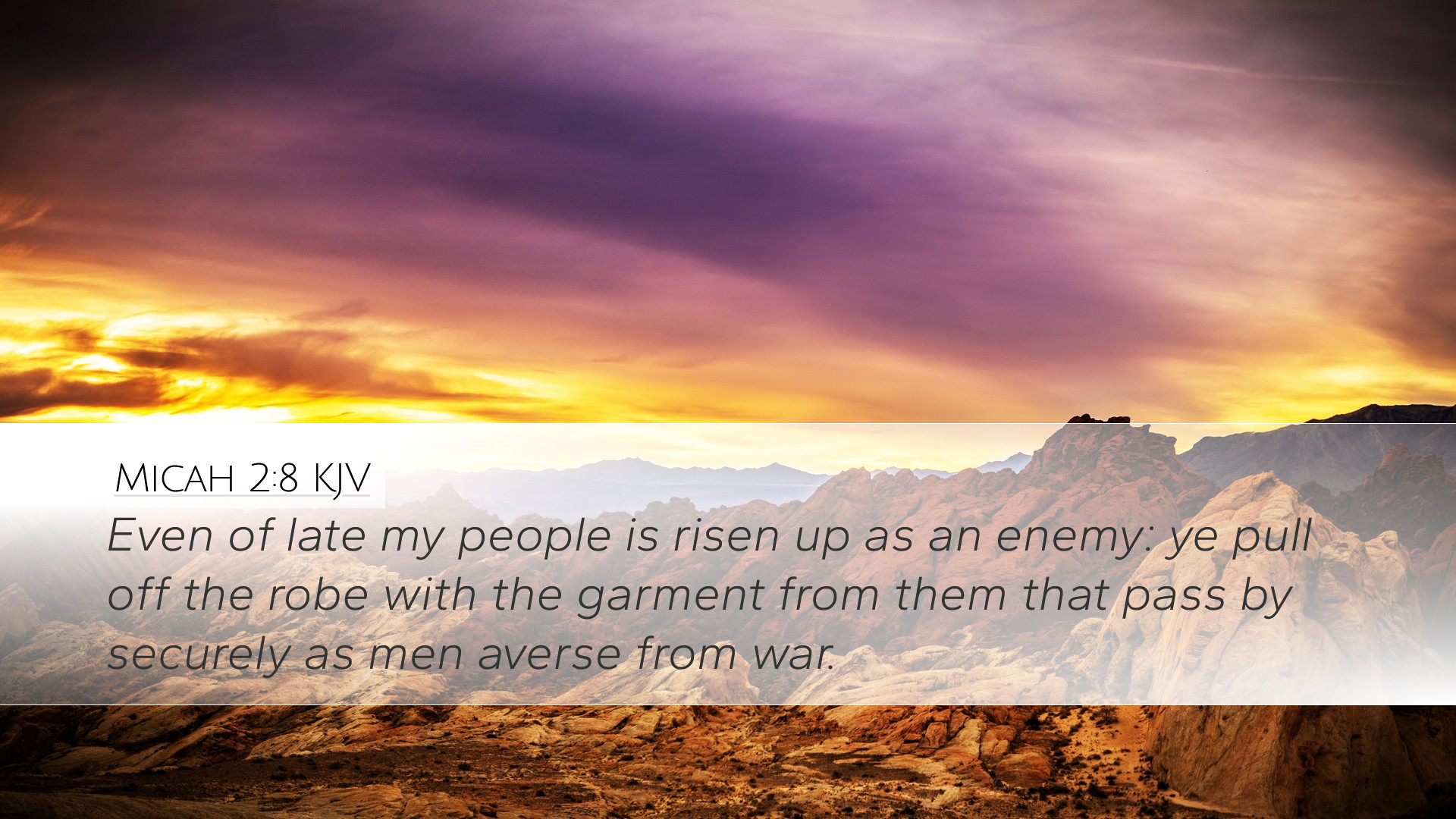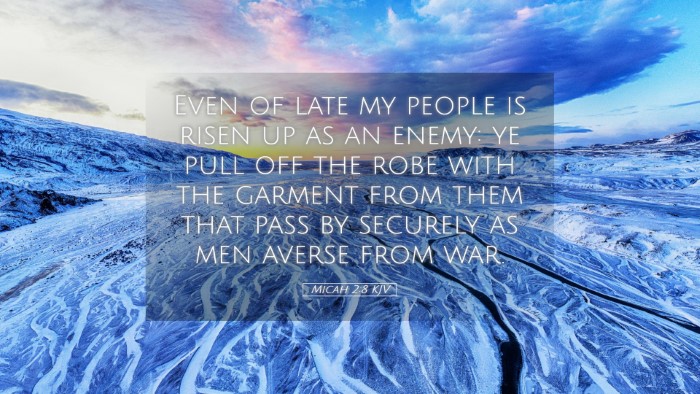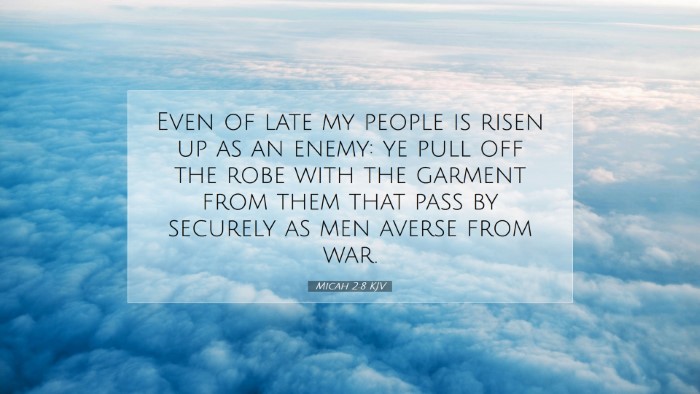Old Testament
Genesis Exodus Leviticus Numbers Deuteronomy Joshua Judges Ruth 1 Samuel 2 Samuel 1 Kings 2 Kings 1 Chronicles 2 Chronicles Ezra Nehemiah Esther Job Psalms Proverbs Ecclesiastes Song of Solomon Isaiah Jeremiah Lamentations Ezekiel Daniel Hosea Joel Amos Obadiah Jonah Micah Nahum Habakkuk Zephaniah Haggai Zechariah MalachiMicah 2:8
Micah 2:8 KJV
Even of late my people is risen up as an enemy: ye pull off the robe with the garment from them that pass by securely as men averse from war.
Micah 2:8 Bible Commentary
Micah 2:8 - Commentary
The verse Micah 2:8 states: "But lately my people have risen up as an enemy: you pull off the robe with the coat from those that pass by securely as men averse from war." This passage contains profound implications about social justice, the responsibilities of God's people, and the prophetic critique of prevailing societal behaviors.
Overview
In this verse, Micah, the prophet, addresses the people of Israel, highlighting a troubling paradox wherein they have betrayed God’s covenant. The reference to rising up as an enemy hints at spiritual and moral decline among God's people. The action described—taking away garments—illustrates the oppression of the vulnerable.
Contextual Background
To fully grasp this verse, it is crucial to understand the historical context of Micah's ministry. Micah prophesied during a time of great social injustice and corruption in Israel, particularly concerning the wealthy and powerful exploiting the poor. The prophetic message often serves as a warning and a call to repentance.
Exegetical Insights
- The People's Betrayal: According to Matthew Henry, this verse exemplifies how the people of Israel had become an adversary rather than a servant of God. This wholesale betrayal of God's commands reflects a broader rebellion that transcends mere actions; it indicates a systemic moral failure.
- Symbolism of the Garment: Adam Clarke discusses the significance of garments as a symbol of dignity and security. By stripping away the coat from passersby—who represent the vulnerable—Israel’s populace illustrates how greed and oppression transpire amidst a backdrop of societal indifference.
- The Perpetrators of Injustice: Albert Barnes elucidates that those “who pass by securely” represent innocent individuals caught in the web of Israel's sin. This phrase underscores the tragic reality that the wealthy and influential have exploited those who should be protected.
Theological Implications
This verse speaks to themes of responsibility and community within the faith context. It serves as a profound reminder that the people of God are called not just to worship but to uphold justice and righteousness. The transgression depicted in Micah 2:8 reflects an urgent need for self-examination within the church structure.
Practical Applications
- Social Justice Commitment: Micah’s admonition challenges today’s believers to stand against social injustices. Modern congregations should consider how they treat those who are marginalized or vulnerable, advocating for their rights vigilantly.
- Personal Reflection: Pastors and leaders are encouraged to self-reflect on their practices and the culture cultivated in their ministries. Are they protecting the weak among them or allowing various forms of exploitation to flourish?
- Covenantal Responsibility: As God’s people, one’s commitment to the covenant includes not just fidelity to God but also ethical interactions with others. This highlights a holistic view of salvation—one that embraces justice in both personal and societal dimensions.
Conclusion
Micah 2:8 presents a critical examination of Israel's conduct, encouraging not just a reflection on ancient societal issues but also advancing a timeless challenge to modern communities of faith. Through this prophet's voice, we are reminded that obedience to God encompasses caring for our neighbors and upholding the justice that characterizes God's kingdom on earth.


